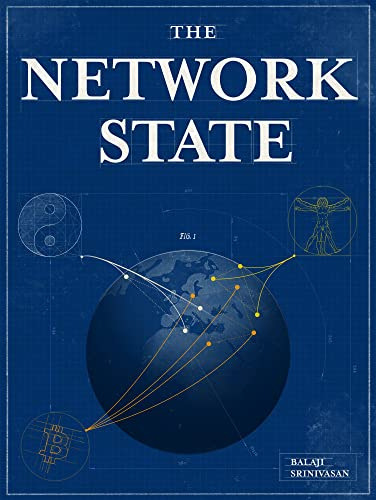First Impressions from "The Network State"
and Next Steps
Just "finished" reading “The Network State”.
Took me almost 1 month to read it (I tried to not skip any links). And I say "finished" because there are so many follow up readings that I'm still going to be in this rabbit hole for some time.
I really like the step by step progression that Balaji describes, from "Startup Society" to "Network Union" to "Network State" That's probably the most useful idea on the entire book. You can get a sense of what he means here.
That idea needs a lot of examples, and I think some of them are good and some didn't clicked to me. This is expected when we're talking about new concepts. It was hard to paint a picture of what the internet could do (remember Gates explaining it?)
The One Commandment
Another idea that generated some controversy is the "One Commandment" idea has generate a lot of criticism, most notably by Vitalik Buterin (below):
I actually think the concept has some validity, the problem lies in the examples given by Balaji ("keto-kosher society" or "anti-cancellation guild").
History
There is something to be said about History in this book. As a History nerd, I have difficulty finding books that combines so well tech and history and have practical use. The potential to use History as an applied science is powerful.
The historical arc of the Westphalian Nation States potentially dissolving into Network States is something that we're already seeing. Network States offer an optimist exit from both anarchy and autocracy.
Next Steps
Two points I am really focused on learning more
(1) Cloud first, land last: seems like an obvious strategy that is being ignored by everyone
(2) Purpose: almost all DAOs and online communities don't really have an overarching purpose like a true community. This is essential
I’m not sure if the vision established in the book will come to fruition, but the interesting thing is that it doesn't need to in order to make economic and social sense.
Intermediate states like a Network Union are already extremely valuable.
Think for example of a union of DAO workers that provides insurance, credit, training, job opportunities, signaling and an overall sense of ownership and collective purpose. Union could charge a % of the member income on-chain to provide the services.
Seems doable.



